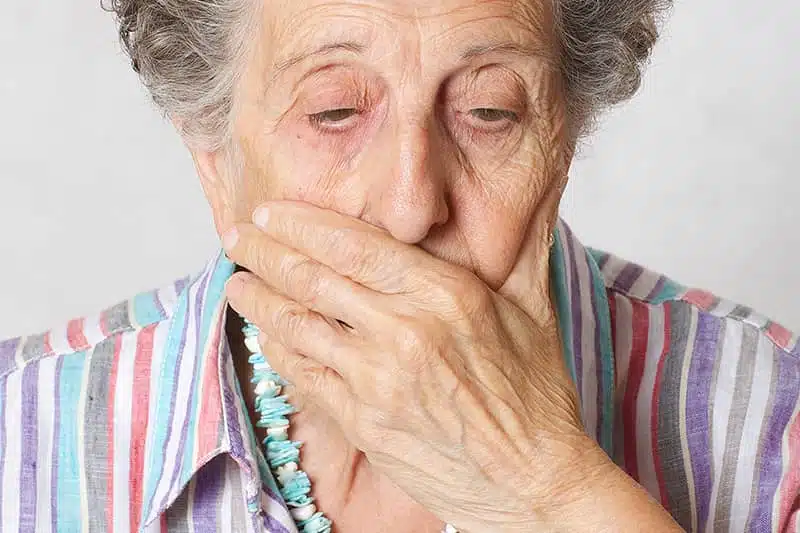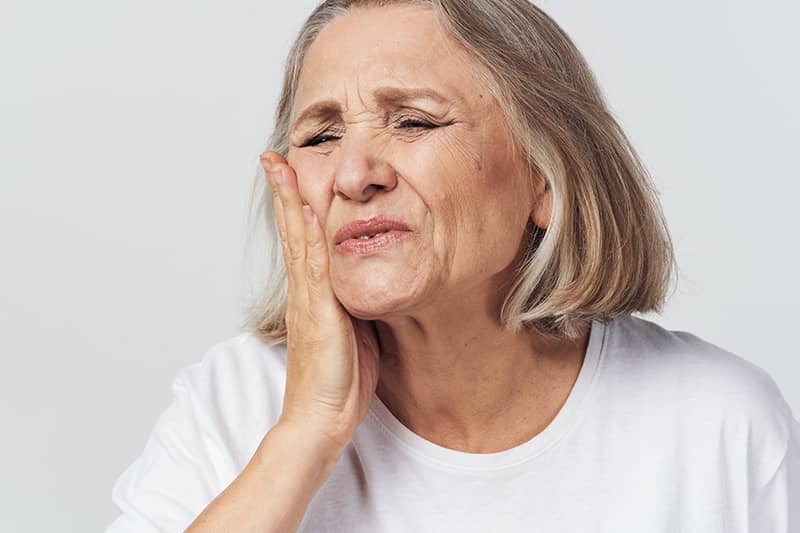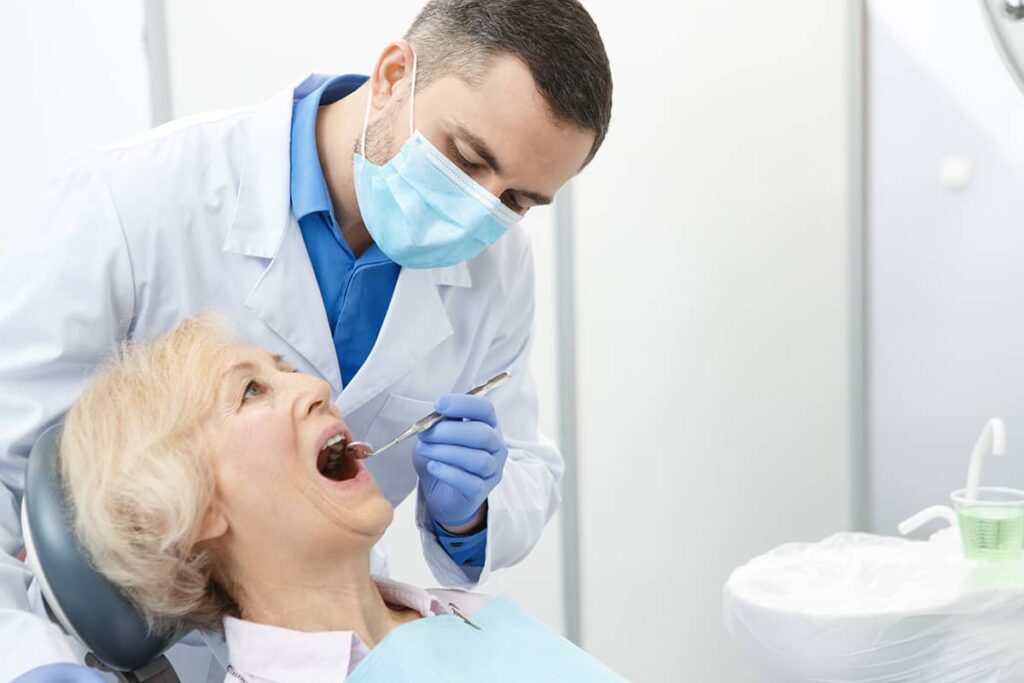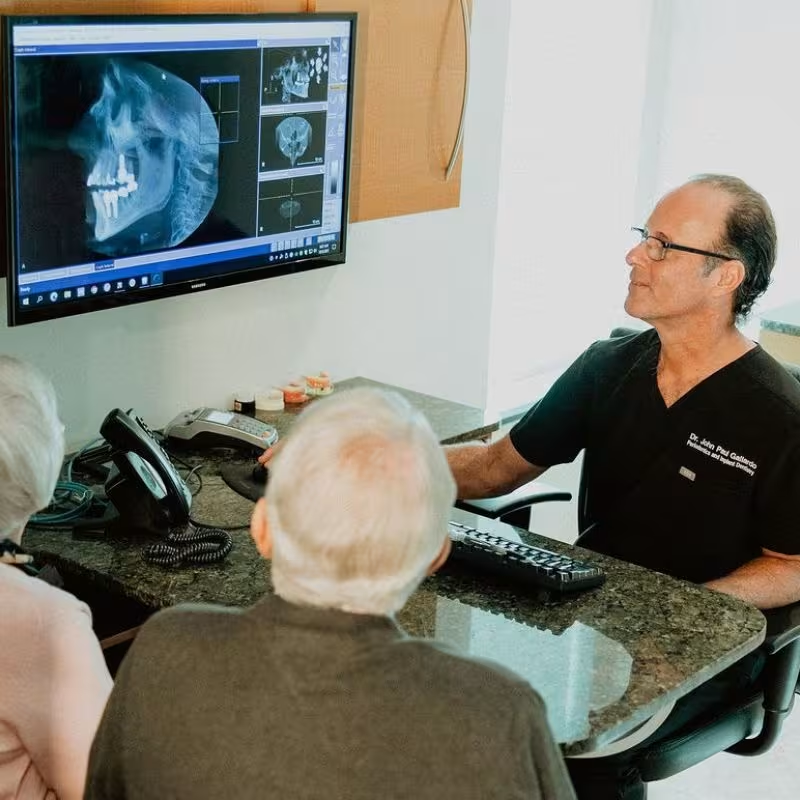
Aging brings several changes to your dental health, such as an increased risk of tooth loss and gum disease. Recognizing these effects is crucial for maintaining a healthy smile throughout your life.
Personalized treatments safeguard your teeth from loss and keep your smile healthy and strong as you age. Dr. Gallardo and his team at Gallardo Periodontics and Implant Dentistry provide specialized care to manage and prevent age-related dental issues.
We’re proud that entire families—from children to grandparents—trust Gallardo Periodontics and Implant Dentistry to maintain their healthy, beautiful smiles.
Essential Facts About Losing Teeth with Age
- Root canals help retain teeth when done by skilled dentists.
- Periodontitis is a major cause of tooth loss in older adults.
- Dental implants effectively replace missing teeth for seniors.
- Gum disease rises with age, leading to increased tooth loss.
- Smoking increases tooth loss risk, impacting up to 70% of smokers.
Losing Teeth due to Aging
Tooth loss is often associated with aging. While older people can lose their teeth and are more likely to have implants or dentures than young people, there’s no reason why a person must lose his or her teeth when getting older.
One reason why people are more likely to lose teeth as they age is because the teeth become less sensitive. The nerves in the teeth become smaller, and a person is less able to feel pain related to dental decay or gum disease. Often, the condition isn’t treated until it’s too late and the tooth is beyond saving.
Luckily, it’s rather easy to prevent tooth loss by taking good dental care and by seeing a dentist often. If a person does end up losing one or more teeth, the solutions available today are more convenient and more natural looking than those available in the past. For example, a patient can have an implant to replace a single tooth that looks and feels like a natural tooth. Implants are permanently positioned in the mouth, so a patient doesn’t have to remove them for cleaning or worry about swallowing them.

Preserve Your Smile as You Age
Our dedicated team at Gallardo Periodontics and Implant Dentistry has been trusted by patients for years to keep their smiles healthy.
What are the reasons for the loss of adult teeth?
Earlier, it was mentioned that permanent adult teeth could be lost due to various factors. Let’s examine some of the most prevalent causes.
Periodontitis
Periodontitis, the progression of gingivitis, is a gum infection that causes soft tissue to recede and destroy the tooth-supporting bone, leading to tooth loss in adults. Although preventable with good oral hygiene, it is a common issue.
Signs of periodontal disease include swollen gums, bright red or purplish gums, tender gums that bleed easily, receding gums that make the teeth look longer than normal, pus between the teeth and gums, bad breath, loose teeth, painful chewing, and other symptoms. If you notice any of these signs, make an appointment with your dentist immediately to diagnose and treat your periodontitis.

Poor nutrition
Strong teeth require essential nutrients such as calcium, vitamin D, phosphorus, potassium, and vitamin C. If these vitamins and nutrients are missing from your diet, tooth decay risk increases.
Consuming a poor diet rich in acidic or sugary foods may contribute to the accumulation of plaque on teeth. This will potentially lead to weakened teeth and cavities over time.
Injuries
Injuries to the mouth can lead to teeth being displaced, but losing the tooth entirely is uncommon. For significant damage or breakage, treatment options may include tooth extraction and the implementation of a dental implant.
Other health problems
Research suggests a connection between gum disease and type 2 diabetes, as well as a noteworthy proportion of individuals with tooth loss also having this condition. Furthermore, several health issues such as high blood pressure, rheumatoid arthritis, and autoimmune diseases could potentially contribute to tooth loss.

Treatment Options for Loose Teeth
- Scaling and root planing is a dental procedure that targets hard-to-remove plaque and tartar buildup underneath the gum line through a thorough cleaning process.
- Dental appliances, specifically a night guard worn while sleeping, can provide a barrier of protection between the upper and lower teeth and may be beneficial for individuals who grind their teeth.
- In situations where the tooth is beyond repair due to extensive gum disease, tooth decay, or injury, extraction may be necessary. A bone graft can be placed in the resulting pocket, followed by the placement of a dental implant as the optimal solution for replacing missing teeth.
Maintaining regular oral hygiene is essential in preventing gum disease and tooth loss: daily brushing (twice a day for two minutes) and flossing once a day. Additionally, scheduling dental cleanings at least twice a year, or more frequently for those with periodontal disease, is important for maintaining dental health.


Leave Your Dental Health to Dr. Gallardo and Team
Gallardo Periodontics and Implant Dentistry is trusted by many families from Miami, Miami Beach, Coral Gables, and surrounding areas.
Other aging problems that affect oral health
Medications, Dry Mouth, and Cavities
Many people think of cavities as a problem that only affects the young. By the time you’ve reached your 60s, you should know how to brush and floss well enough to keep tooth decay away. But, according to the National Institute of Dental and Craniofacial Research, more than 90 percent of people over age 65 have cavities in their teeth. Nearly 20 percent of seniors had untreated tooth decay and cavities.
Getting cavities as an older adult might not necessarily be linked to bad habits regarding oral care. In many cases, the presence of cavities is linked to taking certain medications for chronic conditions. Many medications cause dry mouth, which creates an ideal environment for decay-causing bacteria to grow. Lifestyle habits like vaping and its effects on teeth and gums can further worsen dry mouth, increasing the risk of cavities in older adults.
There are several ways to deal with dry mouth, including adjusting the dose of your medication (with your doctor’s guidance), drinking more water, and using oral moisturizers. Your dentist can also apply a fluoride gel or varnish to your teeth to give them a bit more strength and protection against decay.
Gum Disease and Aging
Gum disease also tends to be more common in older people. According to the Centers for Disease Control, about 70 percent of people over age 65 have a risk of gum disease, from mild to severe. Although symptoms can be very apparent in the later stages of the condition, in the early stages, they can be hard to miss, which might be one of the reasons why it is so common. Early-stage gum disease often starts as gingivitis in older adults, which can easily progress if left untreated
Treating the disease can usually reverse it. The most appropriate treatment will depend on how far the gum disease has progressed. Some patients recover after a non-surgical, deep cleaning, while others need surgical options such as gum grafts or bone grafts. Seeing a dentist or periodontist regularly means that you can spot gum disease before it has a chance to progress or keep the disease from recurring.
Smoking and Aging

Even if a person has reached his or her 70s or 80s as a smoker, without facing lung disease or other conditions, it’s still a good idea to quit. Smoking makes a person more likely to suffer from gum disease and other oral health problems, including oral cancer. According to the National Institute of Dental and Craniofacial Research, smokers are more liking to be missing teeth, too. Current smokers over age 65 had an average of slightly more than 15 teeth, while non-smokers over age 65 had an average of 19 teeth. Nearly 50 percent of current smokers over age 65 had no teeth left.
As you get older, the need to see a dentist or periodontist regularly increases, not decreases. Keep your teeth and gums in the best shape possible for the rest of your life by working with your dentist. If you are in the Miami area and need a periodontist, contact the office of Dr. John Paul Gallardo. Call (305) 447-1447 to schedule a consultation today.